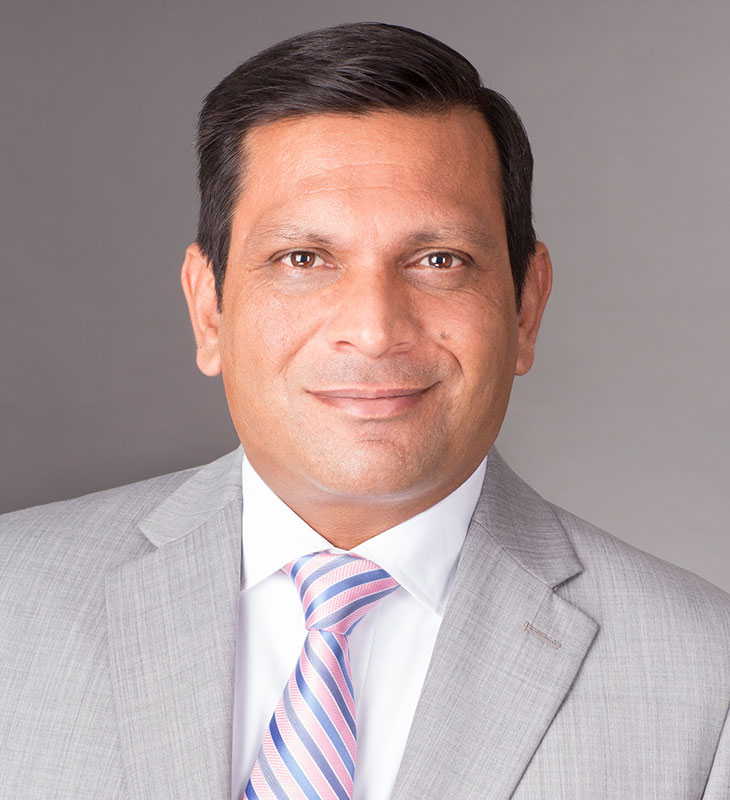
Vet Med Faces of Research: Dr. Pratul Agarwal
Wednesday, March 2, 2022
Media Contact: Kaylie Wehr | College of Veterinary Medicine | 405-744-6740 | kaylie.wehr@okstate.edu
For more than 20 years, Dr. Pratul Agarwal has been conducting research at the intersection of biology, chemistry and computing.
A professor in the Department of Physiological Sciences at Oklahoma State University’s College of Veterinary Medicine, Agarwal also serves as assistant vice president of research for cyber-infrastructure and high-performance computing.
“The combination of biology and chemistry with computing is relevant for research in multiple ways,” Agarwal said. “We work with enzymes, which are in products we use every single day. Enzymes are added to our food to improve the flavor and make food easier to digest. Enzymes are present in our laundry detergents allowing the detergent to clean effectively in lower temperatures. Enzymes are also very important for medicine and health benefits.
“Medical doctors, colleagues of mine, experience immediate joy when they operate on a patient and that patient feels much better the next day. In our case as scientists, satisfaction can take much longer — five years, maybe 10 years. But when we hear that our fundamental research has improved somebody’s life by making better medication or better consumer products, that really gives us joy to know that our research led to some new products.
“I like working on enzymes. Enzymes are not simple molecules. These molecules have been optimized over millions of years of evolution. They are amazingly efficient biophysical machines which perform the catalysis at a rate far greater than any chemical molecules that humans can design. What we do in our lab leads to outcomes such as better medicines and the fundamental understanding of enzymes, which is important to understand how things function inside our bodies.
“When I started doing research as a graduate student, most of the research was done in the lab or in the field. However, research has been completely transformed by the availability of computers. Now data collection, automation and analysis are routinely performed by computers. But people like me have found a niche in computational biology, computational chemistry and other fields to investigate things that are difficult or even impossible to study in the lab using experiments.
“Here at Oklahoma State, we provide a centralized computing environment that includes a supercomputer called Pete. Funded by the National Science Foundation, Pete has 164 nodes. We enable researchers by giving them more computing power than what is available to them in their office or department. At the High-Performance Computing Center (HPCC), we have the hardware, the research scientists and the software developers to help traditional scientists obtain the tools to perform their research.”
Agarwal also uses his expertise at the state’s Pandemic Center in Stillwater where he serves as chief technology and science officer.
“Because of COVID-19, collecting information and analyzing it to develop new treatments has become very relevant," Agarwal said. "Being able to monitor how an infectious agent is spreading is very important to combatting the future pandemics. At the Pandemic Center we are developing a data-based surveillance ecosystem to track pathogens. We want to be able to provide data to help public policy officials and the government to be better prepared to make decisions regarding COVID-19 and any future pandemics.”
Vet Med Faces of Research is a monthly series designed to inform the public about the impact of the numerous studies being conducted at OSU's College of Veterinary Medicine. Advancing knowledge and understanding for the benefit of the lives and livelihoods of the people of Oklahoma is a critical element of OSU’s land-grant mission. If you would like to support research at the college, please contact Ashley Hesser, director of development with the OSU Foundation, at 405-385-0715 or ahesser@osugiving.com.
